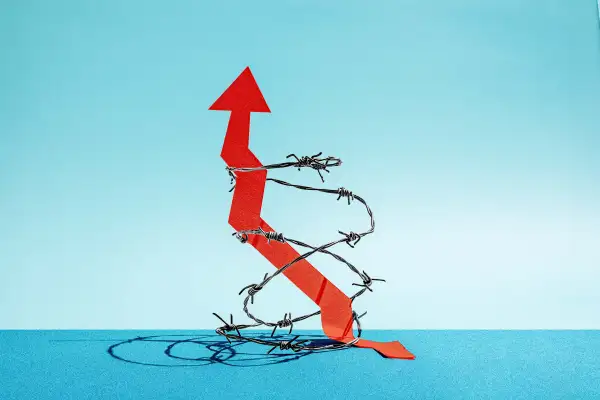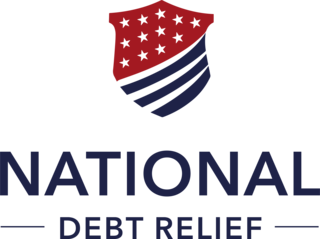Will the Supreme Court Stop Trump's Tariffs? Experts Weigh In

The Supreme Court will hear oral arguments on Wednesday in a high-profile tariff challenge that represents an immediate threat to President Donald Trump's trade policy.
An appeals court struck down many of the president's tariffs in late August. The appeals court ruling, which affirmed a lower court's decision, was a legal setback for the president. However, Trump's tariffs were allowed to remain in effect while the matter advances, and the administration is hoping it will have a more favorable outcome at the high court, which has a 6-3 conservative majority.
The Supreme Court is considering two consolidated cases together — Learning Resources v. Trump and Trump v. V.O.S. Selections.
While the Trump administration has been gearing up for the showdown, it has also been pursuing other avenues to impose tariffs that it could rely on in the event the president loses the Supreme Court case.
At stake in this legal challenge are most — but not all — of the tariffs that have been in the news since "Liberation Day" on April 2, including tariffs on about 90 countries that went into effect in early August after several delays and extensions.
It's a situation consumers will want to watch closely, as inflation is creeping back up and just hit 3% for the first time since January. Goldman Sachs and Bank of America estimate that tariffs have added about half a percentage point to core inflation. Trump argues that his trade policy is supporting American manufacturing and leading to better trade deals; however, over 55% of the public fears tariffs will be "mostly negative for the country," according to Pew Research Center.
When will the Supreme Court rule on tariffs?
The court could issue its opinion at any time after oral arguments and before its term ends in June or July. That means consumers and businesses concerned about the impact of tariffs on their wallets will have to continue waiting for an outcome.
As always with the Supreme Court, the timing is difficult to predict. Here's what we do know: The Trump administration's request for "expedited" review was granted, and Treasury Secretary Scott Bessent has argued that a longer "delay" increases economic "disruption." However, there's no immediate deadline for the court. The drafting of dissents and concurring opinions, if there are any, can extend the time it takes for a decision.
At 10 a.m. Wednesday, lawyers for the Trump administration and the challengers will present their arguments at the Supreme Court and take questions from justices during an 80-minute proceeding. Audio of the oral argument will be livestreamed.
Court watchers sometimes feel they can glean insight into how justices are leaning based on the oral argument. Other times, the justices keep their cards close to the chest, and very little can be discerned.
Will Trump's tariff lawsuit stop price increases?
The U.S. Court of Appeals for the Federal Circuit's 7-4 opinion stated that the International Emergency Economic Powers Act, or IEEPA, does not give the president the power to put tariffs of "unlimited duration on nearly all goods from nearly every country in the world."
The decision affects Trump's reciprocal tariffs of up to 50% on countries with large trade imbalances and a baseline 10% tariff on all other nations, both of which were announced in April. It would also void higher tariffs for Canada, Mexico and China revealed in February.
It's worth noting tariffs on steel, aluminum and automobiles do not rely on the IEEPA and are unaffected by this case. In recent weeks, Trump has added more sector-specific tariffs, which are less vulnerable to legal challenges.
According to the National Foreign Trade Council, a pro-trade business group, shoppers shouldn't rejoice just yet.
"Even if these tariffs are struck down, the uncertainty for businesses isn’t going away given the overwhelming likelihood that [the] administration will rely on other authorities to impose duties," the council's president, Jake Colvin, tells Money in an email.
Why the SCOTUS ruling doesn't mark the end for tariffs
Economists are telling consumers to brace for higher inflation as tariff costs get passed along. Recent government inflation data shows that prices are already rising in certain categories like apparel and coffee. Tariffs are expected to drive inflation for other imported goods in the coming months, too, as pre-tariff inventories and stockpiles are exhausted.
With this in mind, some groups are hoping that the ongoing legal challenge could eventually stop the president's tariffs. One example is the state of Oregon, which is part of a 12-state coalition challenging the tariffs. Private businesses, including a wine importer, are also part of the challenge.
In a statement this summer, Oregon Attorney General Dan Rayfield said the appeals court ruling was a "huge win for Americans." Rayfield added that the result "couldn’t come at a better time, as people are walking into their local stores and seeing price increases for school supplies, clothes and groceries."
Jeffrey Schwab, an attorney representing V.O.S. Selections — the wine importer in question — also celebrated that opinion in a previous statement: "This decision protects American businesses and consumers from the uncertainty and harm caused by these unlawful tariffs," said Schwab, the director of litigation at the Liberty Justice Center.
But the situation is far from final. Bessent has said the administration likes its odds at the Supreme Court. A legal outcome is never guaranteed, however, and it's worth noting that a Republican-appointed judge on the appeals court sided against the president.
"It's a very important decision, and frankly, if they make the wrong decision, it would be a devastation for our country," Trump said to reporters in September.
More from Money:
De Minimis No More: Closed Tariff Loophole Could Lead to Shipping Delays, Higher Fees
How Tariffs Are Affecting Your Favorite Small Businesses
Retirees Are 'Terrified' Tariffs Will Cancel Out the Social Security COLA






